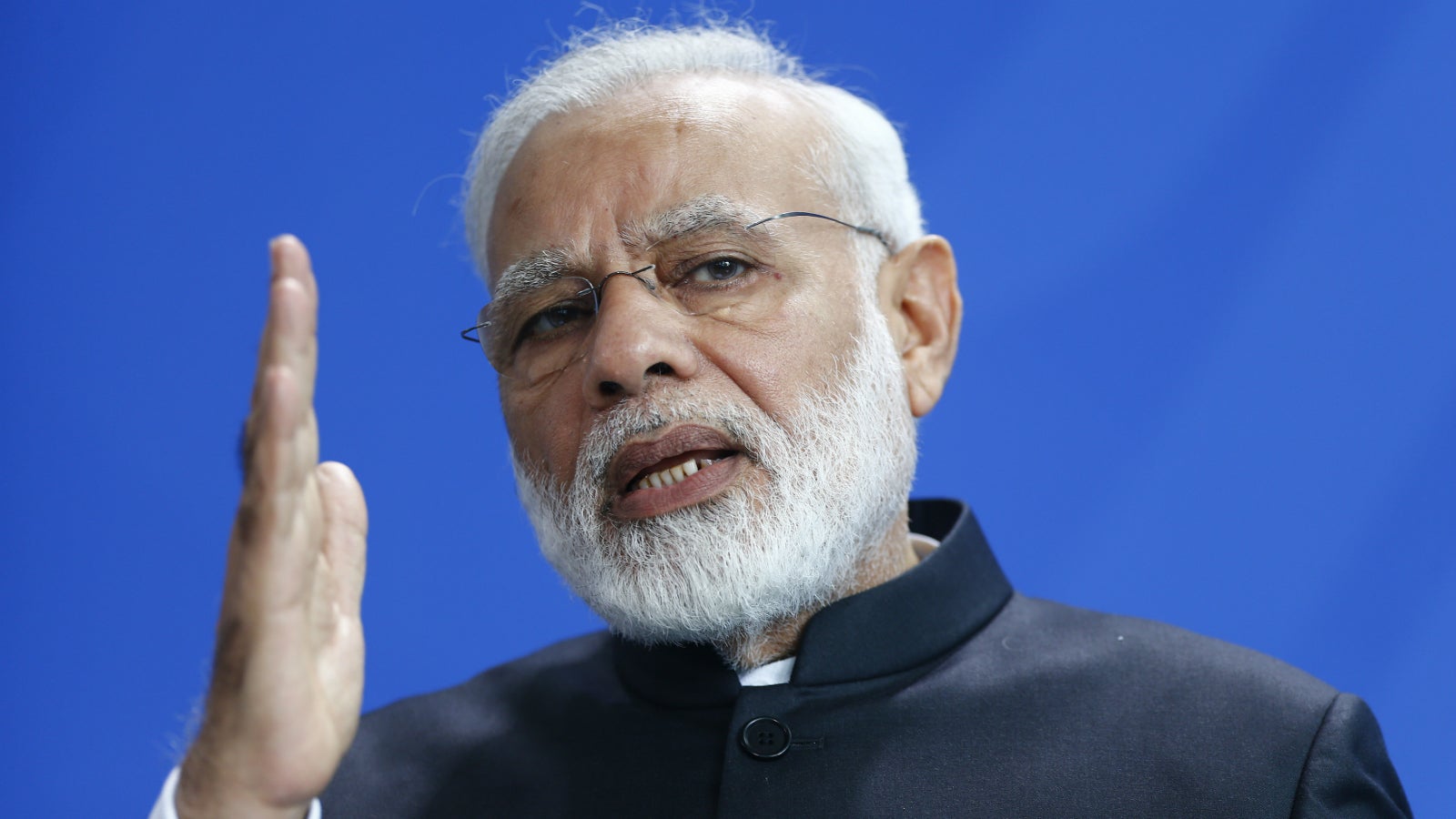Narendra Modi, global climate superhero?
There were many things expected of Narendra Modi when he took office as India’s 14th prime minister in the summer of 2014. Some naturally thought his government would veer right, others bet he’d have a muscular foreign policy. Some foresaw bold economic reforms, while others predicted great public relations.


There were many things expected of Narendra Modi when he took office as India’s 14th prime minister in the summer of 2014. Some naturally thought his government would veer right, others bet he’d have a muscular foreign policy. Some foresaw bold economic reforms, while others predicted great public relations.
Not many would’ve conjectured that Modi could potentially emerge as one among a handful of world leaders fighting to save whatever is left of the environment and balancing sustainable economic growth.
Yet, as US president Donald Trump now looks set to walk out of the Paris climate agreement, Modi has a shot to become just that: A global climate champion, a leader who’s fixing one of the planet’s biggest greenhouse gas emitters and showing the rest of world how it’s done.
It’s not all hot air. Modi actually has a record to show that he’s helped pivot India’s energy landscape in the last few years. Since 2014, there’s been a 91% increase in grid-connected renewable energy capacity, a total of 22.6 gigawatts (GW), nearly twice the capacity added between 2011 and 2014. This clean energy boom has been partly triggered by a steep decline in the cost of setting up solar projects, but the Modi government has supported private renewables developers through a number of regulatory tweaks.
At the same time, India’s coal-based power sector has been in decline. Apart from the increase in renewables, the combination of a bad regulatory framework, sluggish demand, and unexpected changes in laws of other countries have taken the wind out of big coal. India’s Central Electricity Authority estimates that the country won’t need a new coal-based power plant till 2022.
This move away from coal will ensure that India, along with China, will be able to reduce global carbon emissions by between two and three billion tonnes by 2030, and effectively overshoot their Paris agreement goals.
The Modi government is also considering an ambitious (overambitious, some would say) plan to turn all its cars into electric vehicles by 2030. “The idea is that by 2030, not a single petrol or diesel car should be sold in the country,” power minister Piyush Goyal revealed in April. Expectedly, there are skeptics—among them are leaders of India’s automotive industry. However, even if the government is able to get halfway there, it’ll make a massive difference on the ground.
Then, there is the UJALA scheme, under which some 238 million LED bulbs have been distributed nationwide, helping improve energy efficiency at the household level and cut down on tonnes of carbon emissions. In all, the government has tried to tick off all the boxes needed to wean India away from fossil fuels, and chalk out a growth trajectory based on clean energy.
For all his good work, Modi hasn’t quite cemented his position in the global climate leadership. Unlike China’s president Xi Jinping, who has vowed to protect the Paris climate agreement, the Indian prime minister is yet to make a bold proclamation of his intent. To be sure, there is some signalling through the International Solar Alliance, where India is leading some 120 nations to expand the solar sector globally. But if Modi really wants to lead from the front, he needs to be full throated.
There are other challenges, too. First, India and China, despite their individual actions on climate change, don’t see eye-to-eye on a number of issues. So, it remains to be seen if, and how, Modi and Xi will be able to build a partnership of sorts in the absence of the US.
Modi also needs to improve his record of land use and forestry. For all the strides that India has made on the renewables front, the country’s ability to protect and expand areas under forest cover has been under scrutiny. In the first two years of its term, for instance, the government was accused of pandering to the industry, instead of strengthening environmental regulations. And as Indian businesses clamour for more resources, India’s ability to successfully balance industrial growth and sustainability will become even more crucial.
For Modi, then, this is a moment of reckoning. If he misses the bus, there won’t be an electric car coming anytime soon.
We welcome your comments at [email protected].